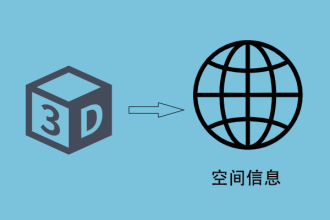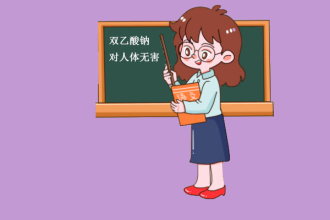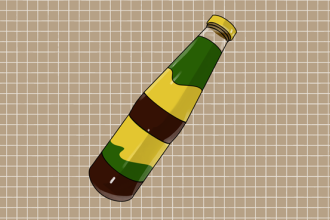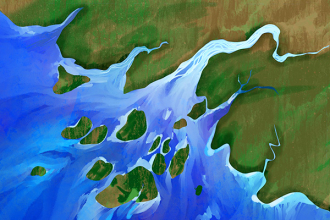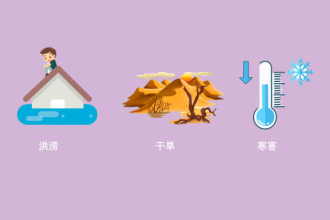CDC | 与洪灾有关的疾病和伤害预防二喵居士 2021-07-21 作者:美国CDC |
关于在洪灾中的一些疾病和伤害预防,查阅了美国CDC的一些信息,简单翻译分享给有需要的人。(原文链接:https://www.cdc.gov/healthywater/emergency/extreme-weather/floods-standingwater.html)
洪水和积水可能是危险的,可能使你容易受到传染病、化学危险和伤害。通过以下步骤,保护你和你的亲人免受洪水带来的风险。
一.不要在洪灾地区开车 - 掉头,不要淹死!
洪水会给每个人带来溺水的危险,无论他们是否有游泳能力。迅速移动的浅水可能是致命的,即使是浅水站立,对小孩子来说也是危险的。
·始终遵循关于水淹道路的警告。
·不要在被淹没的地区开车--汽车或其他车辆不能保护你不受洪水的影响。它们可能被冲走或在流动的水中停滞。
Don’t drive in flooded areas — turn around, don’t drown!
Floodwater can pose a drowning risk for everyone— regardless of their ability to swim. Swiftly moving shallow water can be deadly, and even shallow standing water can be dangerous for small children.
Always follow warnings about flooded roads.
Don’t drive in flooded areas—cars or other vehicles won’t protect you from floodwaters. They can be swept away or may stall in moving water.
二.远离洪水。
·洪水中含有许多可能损害健康的东西。我们不知道在任何特定的时间点,洪水中到底有什么。洪水中可能有:
·倒下的电线
·人类和牲畜的排泄物
·家庭、医疗和工业危险废物(化学、生物和放射性)。
·煤灰废料,可能含有致癌化合物,如砷、铬和汞
·其他可能导致疾病的污染物
·有形物体,如木材、车辆和杂物
·野生或流浪的动物,如啮齿动物和蛇
暴露在受污染的洪水中会导致:
·伤口感染
·皮疹
·胃肠道疾病
·破伤风
·钩端螺旋体病(不常见)
无论污染源是什么,保护自己不接触洪水是很重要的。保护自己的最好方法是远离洪水。
如果你接触到了洪水:
·尽快用肥皂和干净的水清洗该区域。如果你没有肥皂或水,可以使用酒精类湿巾或消毒剂。
·做好伤口护理,必要时寻求医疗帮助。
·用热水和洗涤剂清洗被洪水或污水污染的衣服,然后再重新使用。
·如果你必须进入洪水中,请穿上橡胶靴、戴上橡胶手套和护目镜。
Stay out of floodwater.
Floodwaters contain many things that may harm health. We don’t know exactly what is in floodwater at any given point in time. Floodwater can contain:
Downed power lines
Human and livestock waste
Household, medical, and industrial hazardous waste (chemical, biological, and radiological)
Coal ash waste that can contain carcinogenic compounds such as arsenic, chromium, and mercury
Other contaminants that can lead to illness
Physical objects such as lumber, vehicles, and debris
Wild or stray animals such as rodents and snakes
Exposure to contaminated floodwater can cause:
Wound infections
Skin rash
Gastrointestinal illness
Tetanus
Leptospirosis (not common)
It is important to protect yourself from exposure to floodwater regardless of the source of contamination. The best way to protect yourself is to stay out of the water.
If you come in contact with floodwater:
Wash the area with soap and clean water as soon as possible. If you don’t have soap or water, use alcohol-based wipes or sanitizer.
Take care of wounds and seek medical attention if necessary.
Wash clothes contaminated with flood or sewage water in hot water and detergent before reusing them.
If you must enter floodwater, wear rubber boots, rubber gloves, and goggles.
三.防止受伤
洪水中可能含有尖锐的物体,如玻璃或金属碎片,会造成伤害并导致感染。及时的急救可以帮助愈合小伤口,防止感染。
如果你被刺伤或伤口被粪便、土壤或唾液污染,请根据个人既往接种史确定是否有必要进行破伤风强化接种。
Prevent injuries.
Floodwater may contain sharp objects, such as glass or metal fragments, that can cause injury and lead to infection. Prompt first aid can help heal small wounds and prevent infection.
If you receive a puncture wound or a wound contaminated with feces, soil, or saliva, have a health care professional determine whether a tetanus booster is necessary based on individual records.
四.防止开放性伤口和皮疹的感染。
暴露在洪水中的开放性伤口和皮疹可能会被感染。例如,非霍乱弧菌是生活在某些沿海水域的自然发生的细菌,当开放性伤口暴露在其中时,会引起皮肤感染。这可能发生在洪水期间。为了保护你自己和你的家人。
·如果你有开放性伤口,要避免暴露在洪水中。
·用防水绷带覆盖干净的开放性伤口,以减少感染的机会。
·尽可能保持开放性伤口的清洁,用肥皂和清水充分清洗。
·如果伤口出现发红、肿胀或渗出,应立即就医。
如果出现以下情况,请尽快就医:
·有异物(土壤、木材、金属或其他物体)嵌入伤口。
·伤口有特殊的感染风险(如被狗咬伤或被脏东西刺伤)。
·旧的伤口有感染的迹象(疼痛和酸痛加剧、肿胀、发红、流脓,或者出现发烧)。
Prevent infection of open wounds and rashes.
Open wounds and rashes exposed to floodwater can become infected. Vibrios, for example, are naturally occurring bacteria that live in certain coastal waters and can cause skin infections when an open wound is exposed to them. This can happen during floods. To protect yourself and your family:
Avoid exposure to floodwater if you have an open wound.
Cover clean, open wounds with a waterproof bandage to reduce chance of infection.
Keep open wounds as clean as possible by washing well with soap and clean water.
If a wound develops redness, swelling, or oozing, seek immediate medical attention.
Seek medical attention as soon as possible if:
There is a foreign object (soil, wood, metal, or other objects) embedded in the wound;
The wound is at special risk of infection (such as a dog bite or a puncture by a dirty object);
An old wound shows signs of becoming infected (increased pain and soreness, swelling, redness, draining, or you develop a fever).
五.保护你和你的亲人免受腹泻疾病的影响。
请注意,洪水可能含有污水,食用或饮用被洪水污染的任何东西都可能导致腹泻疾病(如大肠杆菌或沙门氏菌感染)。为了保护你自己和你的家人。
·接触洪水后要洗手。还要确保经常用肥皂和水清洗孩子的手,而且一定要在饭前清洗。
·不要让孩子在洪水区玩耍。
·不要让孩子玩被洪水污染过的、没有经过消毒的玩具。
·不要在可能被污水或有毒化学品污染的水中洗澡。这包括被洪水污染的河流、溪流或湖泊。
Protect yourself and your loved ones from diarrheal diseases.
Be aware that floodwater may contain sewage, and eating or drinking anything contaminated by floodwater can cause diarrheal disease (such as E. coli or Salmonella infection). To protect yourself and your family:
Wash your hands after contact with floodwater. Also be sure to wash children’s hands with soap and water often and always before meals.
Do not allow children to play in floodwater areas.
Do not allow children to play with toys that have been contaminated by floodwater and have not been disinfected.
Do not bathe in water that may be contaminated with sewage or toxic chemicals. This includes rivers, streams, or lakes that are contaminated by floodwater.
六.保护自己不被动物和昆虫咬伤。
洪水会使动物、昆虫和爬行动物流离失所。为了保护自己和家人,要提高警惕,避免接触。
Protect yourself from animal and insect bites.
Floodwater can displace animals, insects, and reptiles. To protect yourself and your family, be alert and avoid contact.
七.要注意洪水中可能存在的化学物质。
洪水可能会导致化学品容器从其正常的储存地点移动。
·不要试图移动你可能发现的丙烷罐--它们很危险,可能引起火灾或爆炸。如果你发现了,请立即联系警察、消防部门或你的州消防局。
·拆除汽车电池时要非常小心。即使是在洪水中,汽车电池可能仍有电荷。使用绝缘手套,并避免接触可能从受损汽车电池中溢出的任何酸液。
Be aware of possible chemicals in floodwater.
Floods can cause containers of chemicals to move from their normal storage spots.
Don’t attempt to move propane tanks you might find— they’re dangerous and can cause a fire or explosion. If you find any, contact the police, fire department, or your State Fire Marshal’s office immediately.
Be extremely careful when removing car batteries. Even if they are in floodwater, car batteries may still have an electrical charge. Use insulated gloves and avoid coming in contact with any acid that may have spilled from the damaged car battery.
八.避免在家里或外界的电伤害。
飓风、洪水或其他自然灾害发生后,你需要注意避免家中和其他地方的电气危险。
·关闭家中的电源和天然气或丙烷罐,以避免火灾、触电或爆炸。
·千万不要触摸掉落的电线。打电话给电力公司,报告掉落的电线。在清理和其他活动中,避免接触架空电力线。
·如果倒下的电力线在水中,不要开车通过积水。
·如果你认为有人触电,请拨打或让他人拨打110或紧急医疗救助。
Avoid electrical hazards inside or outside your home.
After a hurricane, flood or other natural disaster you need to be careful to avoid electrical hazards both in your home and elsewhere.
Shut off electrical power and natural gas or propane tanks in your home to avoid fire, electrocution, or explosions.
NEVER touch a fallen power line. Call the power company to report fallen power lines. Avoid contact with overhead power lines during cleanup and other activities.
Do not drive through standing water if downed power lines are in the water.
If you believe someone has been electrocuted, call or have someone else call 911 or emergency medical help.
责任编辑:王超
 科普中国APP
科普中国APP
 科普中国微信
科普中国微信
 科普中国微博
科普中国微博

最新文章
-
为何太阳系所有行星都在同一平面上旋转?
新浪科技 2021-09-29
-
我国学者揭示早期宇宙星际间重元素起源之谜
中国科学报 2021-09-29
-
比“胖五”更能扛!我国新一代载人运载火箭要来了
科技日报 2021-09-29
-
5G演进已开始,6G研究正进行
光明日报 2021-09-28
-
“早期暗能量”或让宇宙年轻10亿岁
科技日报 2021-09-28
-
5G、大数据、人工智能,看看现代交通的创新元素
新华网 2021-09-28


